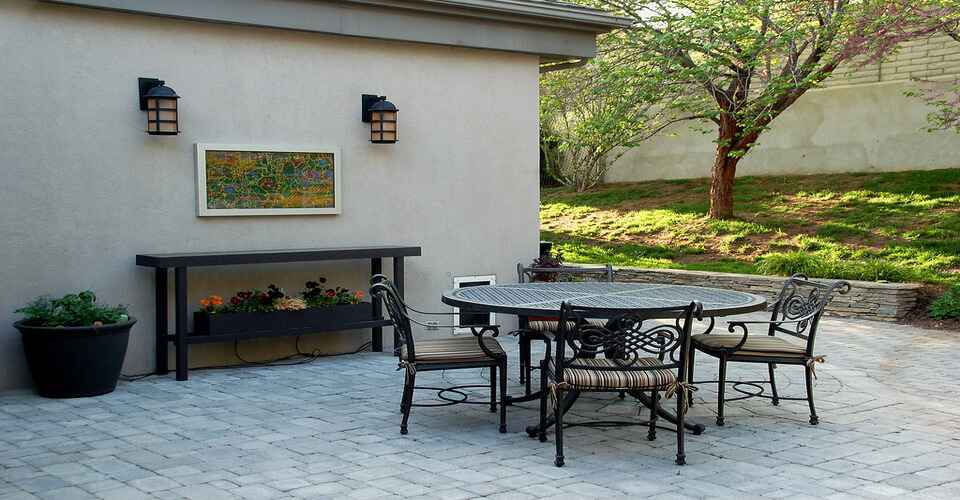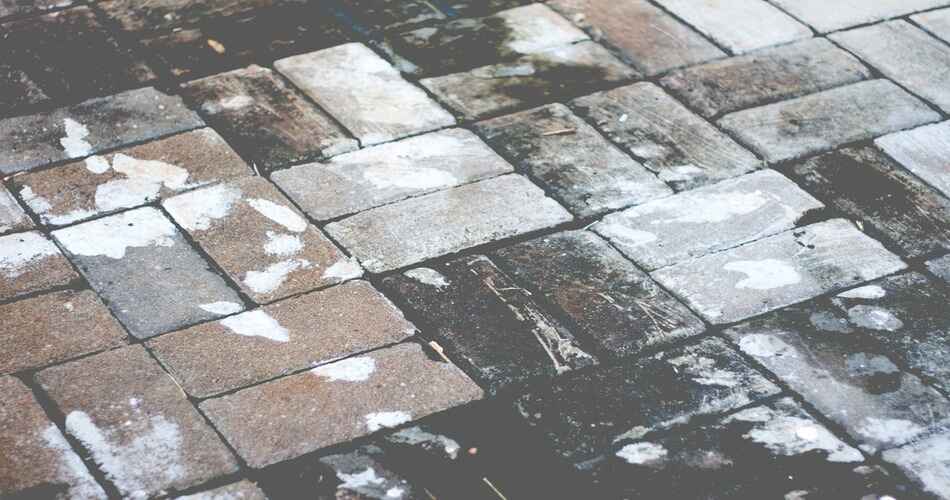How To Choose Pavers For Patio: 9 Important Questions To Ask
It’s time to take your outdoor space to the next level. If you’re thinking about installing pavers for your patio but are overwhelmed with the options, this blog is for you. It will discuss how to choose pavers for patio and answer several commonly asked questions about patio projects.
There’s a lot of ground to cover (pun unintended!), so let’s get started.
1. How to choose pavers for patio – What type should I use?
The toughest decision you’ll take is selecting the pavers for your project. There are dozens of colors, shapes, sizes, and surface textures. So that means there are countless patio paver patterns and styles to choose from. How do you know what’s right for you?
Well, that depends upon two factors: your budget and the appearance you want for your patio.
For starters, your budget will limit your options. Concrete pavers are typically cheaper than brick pavers and stone pavers, but the cost can increase depending on the pattern.
Besides this, the style you want for your patio also matters. Do you want it to complement the current style as an extension of your home, or will it be a stand-alone statement? Do you want a style that never becomes outdated, or do you prefer a unique, more extravagant design?
The answers to these questions will dictate the pavers you choose.
But generally speaking, what’s the best choice? Concrete patio pavers are the most durable and affordable. Plus, they’re low maintenance. What’s more, they come in many styles, so let your creativity go wild.
2. How many pavers will I need for my patio project?
It may be difficult to calculate exactly how many pavers you’ll need. However, there is a way to get a good estimate.
First, measure the region of your yard you want to pave. Next, calculate the area by multiplying the length by the width and find the square foot of the land that will be covered.
Then, select the pavers and the design you want for your project. This will help determine if additional pavers will be required to create the right pattern. Now calculate the square footage of the paver you’ve chosen.
Finally, divide the square footage of your patio by the square footage of a single paver. This will give you an approximate number of pavers you will need for your project.
3. How much can patio paver installation cost?
That depends on the scope of your patio project and the associated costs of additional factors, such as:
- the accessibility of the place where you want to install the pavers
- the type of pavers you choose (concrete, brick, or stone)
- the types of paving patterns you want
- cost of labor and material (sand, gravel, concrete, etc.) in your locality
- delivery costs to bring materials to the site
- whether sealers are used
- additional landscaping features (steps, walls, borders, etc.)
- cost of excavation to level or regrade the site
- cost of cleanup to remove leftover material from the site
4. Which color paver is the best?
There is no right or wrong color. However, there are a few aspects you should consider that can help you decide how to choose pavers for patio.
- Light colored pavers can make your space feel bigger, while darker ones can make the same space look smaller.
- Select a shade that complements the exterior color of your home and the surrounding landscape.
- During the day, dark-colored pavers heat up quickly and stay hot when exposed to the sun. So they’re a better option for areas that receive less sunlight.
But at the end of the day, it all boils down to personal choice.
5. Can patio pavers fade?
Over time, pavers may become slightly lighter, especially if they’re directly under the sun. However, some pavers do not fade, especially if they’ve been coated with a sealer.
Do I need to seal my patio pavers?
It’s better to seal your patio pavers for several reasons:
- Sealers help protect your pavers from the harsh sun.
- It can prevent the color from fading and protect the surface from weathering.
- Sealers help keep the pavers in their place.
- It prevents dirt and weeds from settling into the cracks between the pavers.
- Sealers keep insects from building homes between the pavers.
Remember to reseal your patio pavers every three to five years.
6. Can I lay the patio pavers by myself?
Yes, you can complete this project on your own. However, do some research before you start. Read up about the correct installation technique and materials you will need for the local area.
More importantly, understand how to acquire proper drainage for your patio. While it may look as if all patios are flat and level, they are, in fact, slightly tilted. This ensures the water drains in the right direction.
Considering these technical aspects, it may be wiser to hire professionals to complete this job.
7. How long do patio pavers last?
Your patio pavers can last a long time, possibly 50 years or more, if they’re laid out correctly, and you maintain them regularly. On the flip side, your pavers will have a much shorter lifespan if they’re neglected, exposed to extremely harsh conditions or chemicals, installed incorrectly, or have drainage issues.
8. Will I need a particular type of pavers for landscaping around my pool area?
All pavers are not the same. So you should look for slip-resistant and heat-resistant pavers. This will ensure your pool area stays safe and doesn’t heat up too quickly.
Besides this, select a paver that creates a cohesive, seamless look around the poolside.
9. Can I use patio pavers for my driveway?
You can use pavers for your driveway, but not the same ones that you used for your patio. That’s because pavers are made from different materials. They have varying weight-bearing capabilities and thicknesses.
Since a patio doesn’t have to bear the weight of a car, the pavers are thinner. On the other hand, driveway pavers are smaller and stronger so that they don’t chip, crack, or shift under the weight of a car.
Over to You
Your patio is an extension of your home. So it needs to be perfect and should complement your home.
At NDA Construction, our paver experts can transform your ordinary patio into an extraordinary space. We can help you every step of the way, from how to choose pavers for patio to landscape design and everything in between.
Let’s spice up your patio!



